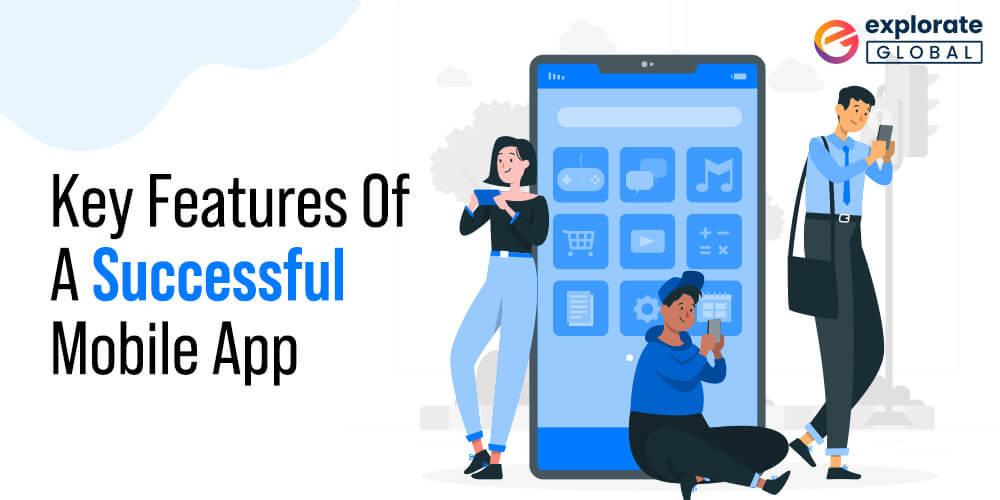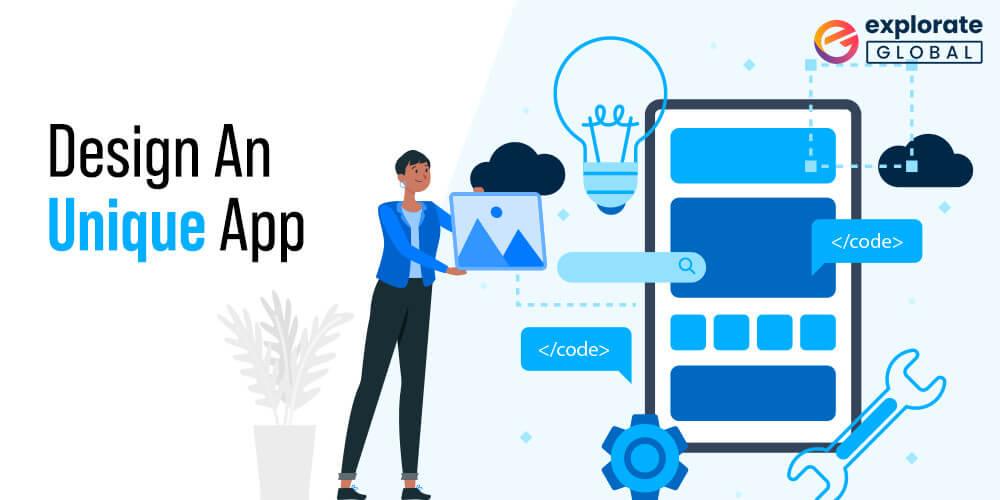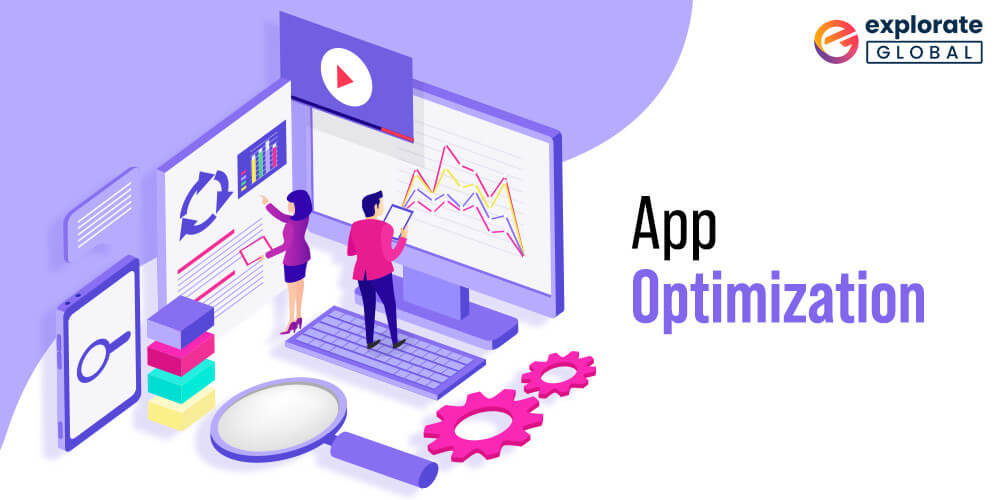
In today’s fast-paced digital world, the mobile app market is expanding very rapidly. Accordingly, mobile marketing tactics are becoming more competitive. Therefore, to ensure the visibility of apps in such a complex situation, app developers need to be very precise about the approach being followed for mobile app development. To develop a successful mobile application, you need to follow a systematic approach to mobile app development so that the app is accepted by the audience.
However, many successful traditional businesses are not very acquiescent about developing an app, rather they prefer to keep their business offline. But with the growing demand of the customers, the picture of the business marketplace has transformed a lot. Nearly every individual has a smartphone and wants to do work with ease. Therefore, every offline business regardless of its size or service offering is executing app development in their business to reach the targeted audiences in no time. Furthermore, every entrepreneur has a question in mind, what to do during the development period of the application and what makes a successful mobile app. So, let’s go through the whole planning process of the pre-app development stage and the precautions that you need to take to develop a successful mobile application to help you out in the app development stages.
10 Key Features Of A Successful Mobile App

We have summarized 10 key features of a successful mobile app to help you out in this procedure.
1) Conduct the Market Research
Regardless of how great and unique your app idea may appear, it is essential to clarify your niche. You might think that you have a good app idea, but there are loads of apps launching every day. There are around 3 million apps in Google Play and 2 million in the Apple App Store. Therefore, a careful examination is required to evaluate a mobile app:
-
- Understand and define your potential customers
- Evaluate and learn from all competitive products
It is possible to market an app in a small niche for a certain group of users and their particular requirements or you can go comprehensive. A micro-niche won’t have much traffic but will have higher conversions. On the other hand, if you go comprehensive an app can provide a bigger pool of potential customers and more strong competition. Therefore, it is required to study already existing products, surf online resources, and social media to find out what inspires or irritates your target audience.
2) Finalize a Great App Idea
Based on the market evaluation, it is possible to finalize a unique app idea. It is important to understand the value proposition of the mobile app and clarify the USP (unique selling points). Based on this, it is possible to build a great app prototype. This prototype is called MVP (Minimum Viable Product), the smallest working version of the product needed to move into the market and once the MVP is defined, it is also significant to take marketing into account. The following marketing characteristics can be of great use during the next steps:
-
- Attractive App Name: Naming an app can be tricky. Yet, it is essential to be catchy and noticeable and should be SEO-friendly.
- App Keywords: Before the app launch, conduct keyword research. Then you will be able to rapidly proceed with enhanced listings and pages. These keywords should be used in all further marketing campaigns as well.
- Impressive App Press Kit: This kit will be used when going to the press or sites for listing the upcoming app. The kit should consist of things like demo videos, screenshots, information about the app, etc.
3) Define a Successful App Strategy
Rushing in the app implementation process can lead to an underperforming and underachieving product. Developing a successful app is like building a unique house; enough time must be spent on its architectural plan. A successful mobile app strategy lies in a well-planned business plan. Business Model Canvas can be a pretty useful tool in finalizing all strategic information in a simple format. Every detail has to be considered in the following categories:
-
- Goals and Future Plans
It is very important to recognize what you want to achieve with this app business. Make these goals as precise as possible. The smart goal-setting principle can be useful to guarantee that goals are realistic and time-bound. As a reference, pin down the three most critical actions you want users to achieve in 30 days with your app. Another important element before mobile app development is the content. You need to understand the onboarding process and welcome messages to involve customers effectively. Try to write this app content in advance.
-
- Technical Preference
It is not only a mobile app idea that makes the app successful, but the execution of the product being flawless is also important. You need to recognize how technologies can make an app better about performance and collect the expertise to develop a successful application. Simultaneously, it is significant to define the development approach for an app – is a web app, native or hybrid.
-
- Resources & Costs
You also need to recognize the budget required for successful mobile app development. The budget required to make the project successful is influenced by many factors: development contractor, difficulty & number of features, etc.
-
- Marketing and Reward Estimation
The initial goal of any business is to earn money. In a successful app business, it is either a percentage of traffic turned into sales or reduced operational costs in dollars per transaction. Generally, profit occurs late on in the process, while costs occur at one single point. A budget should include the money needed to implement an app marketing plan and product development. It is worth mentioning that it is essential to understand how the defined functionality and chosen monetization model resonate with potential.
4) Designing an Unique App

UX/UI design is another important element that is essential to make a good app. Here are some tips to design a mobile app successfully:
-
- Follow the Design Guidelines
It is impossible to neglect this part. iOS and Android systems have specific design guidelines that should be followed to be accepted in their stores. Additionally, each platform has its unique features in terms of user navigation and experience.
-
- Responsive Design
Given the high expenses at the start, it is possible to lower costs with the help of responsive design. This allows for the design that corresponds to all operating systems. The code can then render in a different way on laptops, tablets, and smartphones. Responsive design is an effective way to enhance the user experience through all these platforms.
-
- Refined design
This may distinguish your app from competitive ones. The presence of some stylish graphics, animations, and sound effects can change the picture dramatically, considering web and mobile app design trends. For example, in Candy Crush Saga, every time a user proceeds to the next level, the game has exclusive sounds to match the theme.
-
- Logical and simple design elements
Based on the idea for the mobile app and budget limitations, the design consists of different elements that you may choose from: low fidelity UX, high fidelity UX, UI mockups, animations and illustration, and what best corresponds with product goals.
5) Successful Mobile App Development
Once your designs are complete, the development stage comes into action. These are the tips for building high-performing and stable product:
-
- Focus on the App’s Primary Functionality
Based on research and strategy, the app should focus on a specific problem, and include a particular functionality that solves it. Therefore, all the development efforts should be allocated toward these features, specifically in the first version of the product.
-
- Offer Appropriate Notifications and Define Tags
Over 70% of users are looking for a personalized experience with the brands with which they are interacting. Therefore, it is important to collect profile data from user history to deliver suitable content. The tagging structure can help you to inform your users with all the useful information. Targeting the right user at the right time, with the right information, and with the proper message means you care for them. This can result in higher user retention and ongoing success of the app.
-
- Develop for Both iOS and Android
How do you want to develop an app – native mobile app development or hybrid mobile app development? Firstly, take your budget into account – but it is vital to cover both the Android and iOS platforms for the app to become successful, another approach would be to cover the web, iOS, and Android by building the responsive web application and making it adaptive to mobile devices. With this, you do not have to develop separate apps for different operating systems.
6) Launch an App Successfully
Once the app is designed and successfully developed, the next step is its deployment. This needs a meticulous plan, schedule, and proper control. The main objective is to integrate all the procedures on a production level and comprise software testing services before the release. Some initial work is required:
-
- Integrate analytics tools
Ideally, there is a requirement to connect corresponding analytical services which gives an in-depth image of target users.
-
- Conduct beta-testing
This is needed to complete your MVP and determine your app’s success. Conducting beta testing is the first opportunity to get real feedback. It consists of 3 important elements:
-
- The right target users can help eliminate risks and improve app performance. Additionally, with the Android app development, it is possible to test different features before launch.
- For beta-testing, you need to test all the functionalities on all product platforms.
- Beta-testing can redefine your initial strategy and allow you to make a pivot in product development.
7) App Store Optimization

App store optimization is a common way to ensure your app is discovered by the targeted audience. This is a tedious task with keywords, descriptions, and labels to overtake your competitors. It might take years of continuous optimization, comprising regular app updates to get into the top category. It is worth mentioning that app ranking is based on install velocity in the App Store – the more installs are made in a short period, the higher the app is placed. This indication is tough to accomplish without the help of PR or Advertising agencies, but still, it is possible. Then again, being at the top does not always guarantee real success.
8) Promoting an App Successfully
App success can be calculated by the efforts made and whether mobile app campaigns are successful or not. It is essential to define how to market an app before launch and what channels to use for successful app delivery to the target user.
-
- Social media promotion – One of the easiest things to do during a pre-launch period is to utilize all social channels like Facebook, Instagram, and Twitter. Make use of these social media marketing to reach out to your potential users.
- Reach out to influencers – Addressing top bloggers would be a great way to generate interest among potential users. Thus, developing authentic and mutually beneficial relationships with influencers will go a long way to promote your app successfully
- Create a landing page– The landing page can be of great use either on a website or with the help of some ready-made solutions. This page should be promoted via Google ads or social media. The message needs to offer information regarding the key benefits of the app, including features, sample screens, a demo video, etc.
- Search Engine Optimization – Once you have your app URL, you can consider a SEO agency also. Small analysis can define the best magnet keywords to rank for better outcomes.
9) Check the Mobile App Metrics Regularly
Generally, the useful mobile metrics can be divided into 4 categories: user engagement, customer satisfaction, customer acquisition, and app performance. There are lots of metrics that should be followed depending on the app marketing plan. Return on investment needs to be measured to find out the return on the efforts of your marketing or other campaigns. For this, you must specifically define the cost associated with the app campaign.
10) Ongoing App Engagement and Support
Ongoing support and regular updates based on user feedback make a successful app. Business model review and continuous competitor analysis (ensuring your business strategy and competitor analysis are the latest). Embedded analytics and collected metrics help to not only fix bugs but to understand what features to transform. Moreover, take into attention new guidelines for a good app from operating systems and always fulfill with them in your product
Conclusion
It is important to remember that a successful app requires a proper strategy, insight, and constant dedication. This is a lengthy process and needs a lot of expertise therefore it is advised to hire mobile app developers from a reputed software development company like Explorate Global. Eventually, success is often found by delivering value to your users and focusing on making an excellent user experience.


